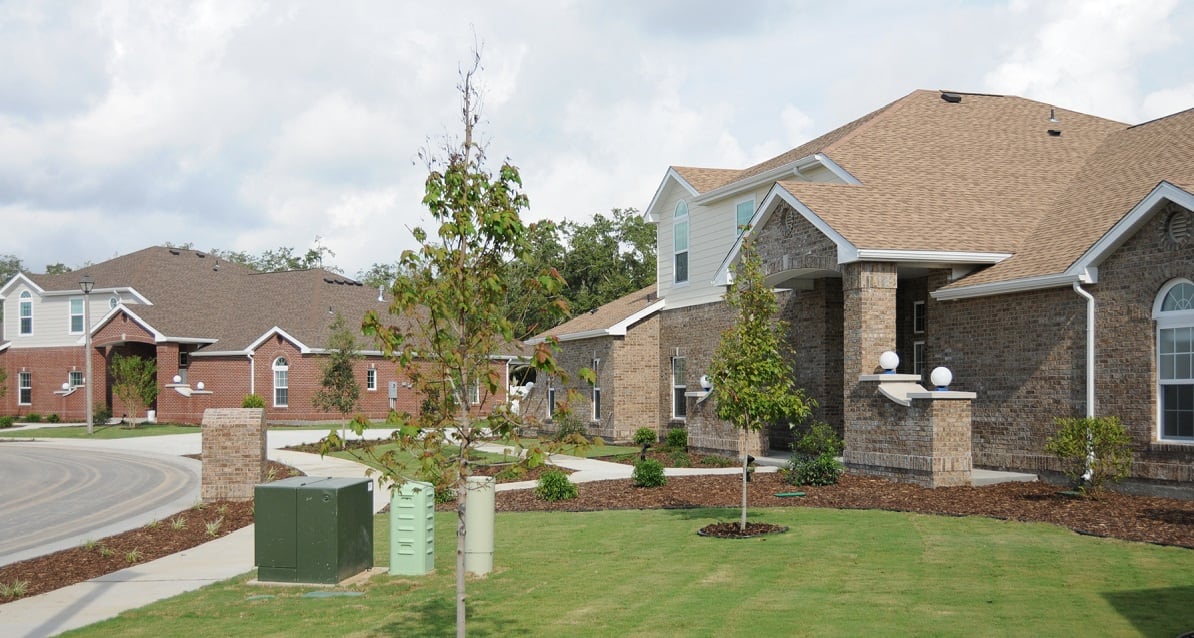Sailors and soldiers, don’t ignore this survey. The Navy and Army want your feedback about your housing, as service officials seek more information about living conditions of service members and their families.
The Navy has just begun fielding a new housing survey, but this one is different. It’s an out-of-cycle survey, conducted by an independent contractor on behalf of the Navy, rather than the long-standing practice of annual surveys conducted on behalf of the companies that provide privatized housing. The survey was directed by Chief of Naval Operations Adm. John Richardson as a result of recent concerns about conditions of housing across all service branches.
The contractor, CEL & Associates, Inc., is sending letters or emails to each resident with instructions on how to access the survey. Sailors will answer questions about their likes and dislikes with their housing, their concerns about their homes, their community and services provided by the housing management companies, as well as their overall satisfaction, according to a Navy announcement.
As service officials delve into the problems with military housing — such as mold, mice, termites, water leakage and other issues — reported in the media and in congressional hearings, they’re evaluating input from their contacts with service members and families about housing issues over the last few weeks. They’re working with privatized housing companies to fix the current problems and set processes into place to prevent the issues in the future. Officials are putting priority on life, safety and health issues.
Army officials are revising their housing satisfaction survey, and will send it to residents “in the weeks ahead,” according to testimony from Alex Beehler, assistant secretary of the Army for installations, energy and environment, at an April 4 hearing before the House Armed Services Committee’s readiness subcommittee.
Survey dates for sailors living in privatized family housing or privatized unaccompanied housing are through April 30; for those living in government-owned family housing, through June 6; for those living in unaccompanied housing operated by the government, through June 20, according to a Navy administrative message announcing the survey.
RELATED

“The housing surveys will give Navy leadership a better understanding of overall resident satisfaction and an opportunity for residents to tell us about their housing experience and concerns,” stated the Navy administrative message from Vice Adm. M.M. Jackson, commander of Navy Installations Command. “Constructive feedback is critical for the Navy to correct these issues and to understand where processes are working properly or not.”
The Navy and Army surveys are part of efforts across DoD and the services to address military families’ problems with their housing, and their frustrations in getting their concerns heard and addressed. A number of issues have been raised in media reports, first reported by Reuters.
Since congressional hearings where military families described their experiences with mold, termites and other issues, service officials have been contacting their members to get their feedback, either directly or in town hall or other gatherings. Officials have encouraged service members to volunteer to have their chain of command visit their residences so they can see the problems.
Here are some of the results of those contacts:
Air Force: Through March 1, 50,991 military residents in government-owned, government-controlled, and privatized housing had responded, and 14.1 percent of those contacted expressed a concern because of a life, health, or safety issue with their home. Privatized project owners and military commanders have been notified of these concerns, and the Air Force Civil Engineer Center is tracking the completion of work done by the privatized company to address the concerns. In some cases where conditions were determined to be unsafe, the Air Force has moved families into safer housing, said John Henderson, assistant secretary of the Air Force for installations, environment and energy, during the April 4 hearing.
Navy: The Navy has contacted more than 44,000 sailors living in privatized or government-run housing, and have identified about 4,700 issues, Under Secretary of the Navy Thomas Modly told House lawmakers during the April 4 hearing. Of those, about 2,800 sailors have asked for a personal visit to resolve the issue, and about 900 of those visits have been made to address specific problems.
Marine Corps: Officials have contacted more than 58,000 Marines and expect to have completed their contacts by April 15.
Army: Officials required installation commanders to visit all family housing to ensure no family lives in a home with problems related to a life, safety or health issue, and the results of those reports are now being evaluated, said Beehler. Each installation commander has established hotlines and conducted town hall meetings. Common themes included poor customer service, lack of work order transparency and resident’s inability to hold housing companies, he said. The Army has 104,000 units of family housing; more than 87,000 of those are privatized, operated by private companies.
Among other things, the services are beefing up the number of personnel in their government housing management offices on the installations, to provide better oversight over housing. The Army has already hired 119 additional housing staff for the installation level; the Air Force wants to add 250 personnel.
The services have initiated investigations and audits into their housing programs, and some have set up housing hotlines to speed up the process for families to get the help. The Air Force is drafting a policy to establish tenant councils for both privatized and government-owned housing throughout the Air Force.
Karen has covered military families, quality of life and consumer issues for Military Times for more than 30 years, and is co-author of a chapter on media coverage of military families in the book "A Battle Plan for Supporting Military Families." She previously worked for newspapers in Guam, Norfolk, Jacksonville, Fla., and Athens, Ga.




